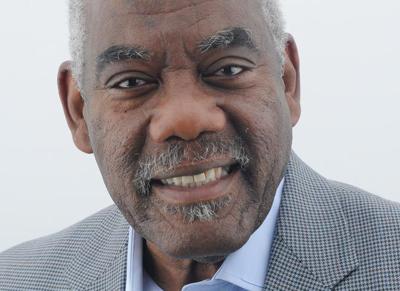The cracks in the PNM’s hegemony became more prominent after its defeat in the last general election. Power and cowardice hid these fissures for a long time. All one sees within the PNM now is “vaulting ambition, which o’er-leaps itself/ And falls on th’ other”. (Macbeth) This reckless ambition will lead the party into an abyss.
After the PNM’s political disaster, the former Leader of Our Grief and Sorrow accused Dr Amery Browne of ingratitude after Browne suggested they could “rig the game but can’t fake authenticity”. Robert Le Hunte says of the Leader’s imposition of Stuart Young on the party: “It wasn’t just cynical. It was obscene. It was perverse.” (Express, May 10.)
The “PNM Changemakers” demanded the “immediate removal” of Foster Cummings, secretary of the party (Express, May 10.) They accused him of “trying to retain his grip on PNM’s internal machinery”. What cruel fate! It is claimed that Cummings ran Patrick Manning out of Balisier House when Manning lost the 2010 national election.
Some of us saw signs of the party’s decay before April 28.
In 2019, I wrote that “the PNM does not need an expert to tell it where it has gone astray. It needs to listen to the whispers of ordinary people to understand the quandary into which it has found itself.” (Express, August 31, 2019.)
I argued that the former Leader should stop attacking Kamla Persad-Bissessar and the UNC...and concentrate on telling the people what it did during the period (2015-19) and hoped to achieve in 2020-25; every PNM member should be involved in getting the party ready for 2020; and the party’s legislative arm should meet monthly to discuss national issues.
I suggested the party recant its belief that money (financial resources) alone could take it forward. Ideas (human resources) were essential in the process of governing. I asked the Leader to seek competent people rather than inexperienced and incompetent friends to run the various agencies of government, and insisted that the party institute concrete programmes to improve the lives of black youths.
Finally, I counselled the former Leader to stop ad-libbing when he addresses the nation on serious issues. I reminded him that leadership requires a combination of reflective intelligence and intuitive action and that he should use his political capital wisely.
In retrospect, it seems that the PNM’s leaders did not study Eric Williams’ writings carefully. In “Perspectives of the Party” (1958), Williams spoke about the possibility of the party having two leaders: a political leader and a theoretical leader.
He noted that “at this present stage of development, he [the political leader] is the main source of its ideals and of its political and social attitudes”. The theoretical leader “is the source of inspiration, ideas and facts and research for journalists, orators and the innumerable other individuals and groups who transmit their ideas to the public”. CLR James had taught him this approach to governance.
A modification of this arrangement, if worked out carefully, may have justified PNM having a political leader and a Squatter PM serving simultaneously and working together. Vaulting ambition and egocentric posturing prevented such a collaboration.
A lack of courage by party and legislative leaders also played its part in the PNM’s failure. No one was brave enough to buck the iron hand of the Leader publicly, which raises the question: how prepared are they to lead now and why the precipitous rush to select new leaders so quickly? My mother used to say, “Hurry bird build bad nest.”
PNM’s public relations officer Faris Al-Rawi stated that the General Council agreed to hold a special convention on June 29, 2025. Former general secretary Ashton Ford called this decision “perplexing, especially given the expectation that the party is entering a critical rebuilding phase”. (Guardian, May 21.)
He reminded the party that “rebuilding a party begins with its foundation—the party groups”.
He’s critical of the party hosting a convention without the participation of the party groups, “the ground troops of the PNM”. He characterised the political manoeuvring of the party executive who led a failed election campaign as a strategy “to engineer a predetermined outcome...Many party members are now openly expressing their concern about this rushed convention”.
Any casual observer would want to know why this rush to an early convention is any different from the former Leader’s rush to impose a Squatter PM on the nation. But as is true of the PNM these days, “The more things change, the more they stay the same.”
Inexperienced and uninformed PNM members may be delighted by this inexplicable change, but veteran party members realise that the exchange of one dictatorial group for another guarantees the PNM will remain in opposition for the next ten years.
A reincarnated PNM should be reminded of Williams’ advice to the PNM’s Youth League circa 1960s: humility, patience, and integrity. Therein lies PNM salvation.
—Prof Cudjoe’s e-mail address is scudjoe@wellesley.edu. He can be reached @ProfessorCudjoe.




